Taliban Officials Majored At Iran’s Al-Mustafa University
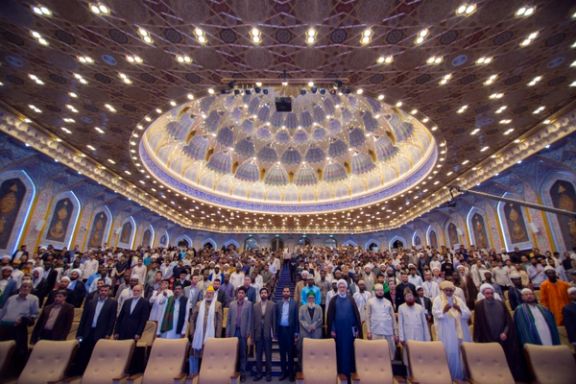
The dean of Iran’s Al-Mustafa International University says some of the officials of the new government of Afghanistan have studied at the institution.

The dean of Iran’s Al-Mustafa International University says some of the officials of the new government of Afghanistan have studied at the institution.
The university, which is the Islamic Propaganda Bureau of the Qom Seminary, is a state-funded university-style Shia seminary with branches in almost 60 countries.
In an interview, Ali Abbasi said people of 83 nationalities are studying at the institution while in its Kabul branch, more than 50 percent of scholars are Tajiks and Sunnis.
It is not clear exactly what is being taught at the Kabul branch after the Taliban takeover, but the branch’s website reported almost 4,500 scholars were studying there until 2019.
Abbasi did not explain how people who were trained in this Shiite complex took positions at the Sunni government of the extremist Taliban.
The Al-Mustafa University pays for hundreds of foreign students from China to Africa and Latin America who come to study and then return to spread Iranian Shiite teachings in their countries.
Observers say Al-Mustafa has become Iran's chief tool for promoting Shi'ism abroad. The university received around $80 million in the 2020-2021 Iranian budget, making it more important than ever. It is believed that Ayatollah Ali Khamenei's office and businesses under his control provide additional funding to Al-Mustafa.
In 2020, the United States imposed sanctions on the massive university network, alleging that it recruited Afghan and Pakistani students to fight in Syria.
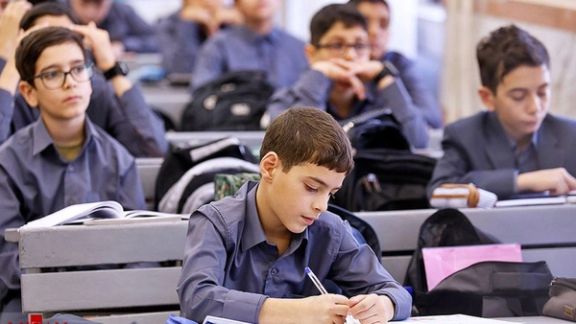
An official from the Iranian ministry of education says students are no longer required to learn English, but Arabic is still mandatory.
Fatemeh Ramezani, the Secretary of the Curriculum and Training Commission of the Supreme Council of Education, said Sunday that "students must learn a foreign language during their junior and senior secondary education, but this language is not necessarily English."
She said that instead of English, students can choose French, German, Italian, Russian, Chinese, and Spanish, as well as additional courses in Arabic.
Ramezani emphasized that Arabic "as the language of the Qur'an" is mandatory in the first and second year of secondary education.
In January, the Islamic Republic announced its intention to change the content of textbooks in foreign language schools after criticism by Iran’s ruler Ali Khamenei.
The head of the body for non-governmental schools, Ahmad Mahmoudzadeh, told ILNA: “We will have a call to produce content of language books for schools, which will be implemented in line with the order of the Supreme Leader,” suggesting locally produced, more religious material would replace any taught content.
Ali Khamenei has criticized teaching English in general, deemed the language of the West which he commonly refers to as 'the enemy'. In 2016 he criticized its being taught as early as kindergarten, leading the ministry of education to subsequently ban teaching English in primary schools.
In recent years, some government officials have also suggested that instead of English, the teaching of Russian, Chinese and German languages should be supported in Iran.

Tens of former Iranian ambassadors and senior diplomats have issued a statement warning about the perils of Iran’s controversial pro-East foreign policy.
The statement said, "The policy of a unilateral tendency favoring the East and radical opposition to the West as well as denial of the benefits of balanced relations with world powers have irreparably damaged Iran's interests."
This statement was issued following Russia's support for the claim by United Arab Emirates over the three Iranian islands of Abu Musa, the Greater Tunb and Lesser Tunb. The UAE wishes to refer the case to the International Court of Justice. Tehran has dismissed Moscow's stance as "undermining Iran's territorial integrity" and some Friday Prayer Imams in Iran have called for an apology by Russia.
The former diplomats warned that absolute reliance on friendly ties with some countries (Russia and China) will naturally make them believe that they can do anything to Iran.
A day earlier, some websites in Tehran reported on a speech July 12 by former foreign minister Mohammad Javad Zarif, who had argued along the same lines, saying that a perpetual anti-West policy is harmful to national interests.
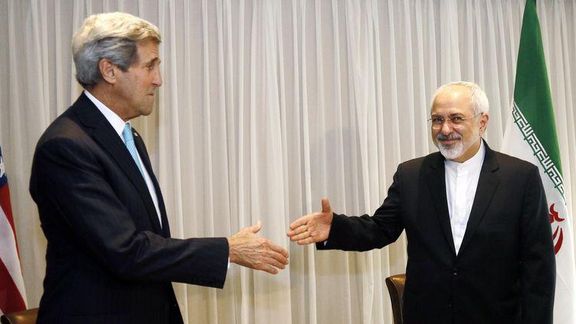
They said that such a policy will impose a heavy cost on the country, adding that a balanced foreign policy and a realistic approach to international relations, as well as avoiding policies that negatively affect Iran's national interests can be the driving force of an intelligent foreign policy in the current situation.
The statement said Iran owes its territorial integrity to the endeavors of its citizens, and the government is committed by law to defend the country's territorial integrity. It further noted that this was not the first time Russia undermined Iran's interests.
The former diplomats added that dignified diplomacy requires prevention of such unfriendly stances in any way possible. They pointed out that although Iran attaches priority to its international relations and particularly to its ties with Russia, nonetheless, the country's national interests and territorial integrity come over and above everything else. The statement stressed that there is no room for any compromise on the country's national interests.
The senior diplomats further observed: "We believe that the reason for imposing this unacceptable behavior by others and ignoring the Islamic Republic's status and its national interests is that Iran has stopped abiding by its principle of "neither East, nor West" which was its motto after the 1979 revolution.
The lack of a balanced foreign policy will encourage opportunist states to take advantage of their relations with Iran and using it solely to serve their own interests, the statement said.
Meanwhile, the print media in Tehran highlighted the statement on Sunday. Etemad Online quoted academic Ali Asghar Zargar as warning that "Russians can easily play with Iran's card and gamble on Tehran's interests, adding that Iran must be alert about such eventualities and not be content simply by demanding apologies from China and Russia when they undermine its interests.
On the same day, Khabar Online carried a report in which it asked: "Why Russia and China often surprise Iran? Can we expect anything more than this from unilateral relations?" The website added that the controversy over Russia's behavior less than six months after China had adopted a similar position on the issue of the three islands, was an outcome of Iran's imbalanced foreign relations.
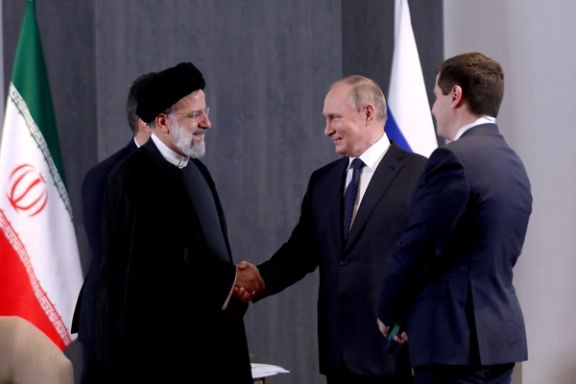
Tehran’s claims about Russia reiterating its support for Iran’s territorial integrity have been put in doubt by a Russian TASS news agency report.
The Iranian ambassador in Moscow and government media claimed Saturday that a senior Russian diplomat had backtracked on Moscow’s earlier endorsement of a territorial claim by the United Arab Emirates, by reiterating support for Iran’s territorial integrity over the Abu Musa, and the Greater and Lesser Tunb islands in the Persian Gulf. Iran's islands are claimed by the UAE as their own.
IRNA, the state news agency soon after claimed that the remarks indicated Russia had revised its position on the three islands. However, a report by the Russian news agency TASS shows the Russian diplomats were simply playing diplomatic chess with Iran, the two countries now firm allies since Iran has become a major supplier of drones and arms for Russia's war in Ukraine.
The TASS report not only mentioned nothing about respect for Iran's territorial integrity, but once again used the word ‘Arab Gulf’ to reiterate the stance of Russia’s foreign ministry expressed earlier.
TASS also quoted the Russian foreign ministry as adding that the senior Russian diplomat received the Iranian ambassador at his request.
Last week Moscow supported the United Arab Emirates’ sovereignty over three contested islands, causing diplomatic friction with Iran. Its loyalties are to the UAE which is one of the only states to still trade with Russia in spite of sanctions. Hundreds of thousands of Russians have flocked to the country since the war broke out last year.
Iran’s foreign ministry summoned Russia's ambassador and Foreign Minister Hossein Amir-Abdolahian and government spokesman Ali Bahadori wrote in separate tweets that "Iran will not compromise over its national interests and territorial integrity."
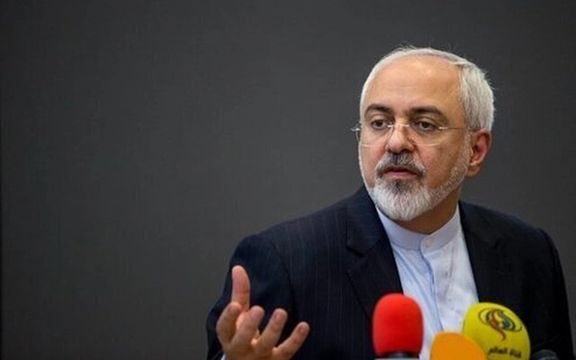
Iran's former Foreign Minister Mohammad Javad Zarif says Tehran has the wrong understanding of its relations with Russia, which is based on miscalculations.
Zarif, who negotiated the 2015 JCPOA nuclear accord with the United States, suggested that Iran should have its strongest ties with China like some 180 other countries in “the current post-western world,” when neither all important events take place in the West, nor it is the West that makes decisions on important developments of the world.
In a speech at the Iranian Society of Political Sciences in Tehran July 12, Zarif said that the end of the Cold War gave rise to the illusion of the emergence of a unipolar world order. "In fact, the years 1990 – 2008 were marked by the illusion of a unipolar world," he said.
The former foreign minister's speech came after a long silence, and it is not clear if the timing of his public appearance carries any particular meaning.
Zarif added that at the time, Russia had lost the Cold War, but the United States did not win it. "We are currently undergoing a period of transition," he said, adding that many politicians in Iran still have the mentality of the Cold War era and expect Russia to play the role it used to play. This is based on a wrong perception and this miscalculation can lead to our destruction.
"Today Russia cannot compete with other powers in any area. The reason why Russia attacked Ukraine was that it wanted other powers to negotiate with it," Zarif said, adding that "Today there is no permanent alliances between countries. Instead, they are replaced with temporary coalitions. Thinking of permanent alliances is a pitfall."

He argued that Iran wrongly thinks Russia can be its ally. Many were surprised when Russia did not veto UN Resolution 1929 against Iran, which set up a fact-finding mission to investigate human rights violations. “But I knew that they were not going to veto it,” Zarif said. However, he insisted: “I am not an anti-Russian person. I believe it is dangerous for Iran to be anti-Russian or anti-US. We should prioritize our national interests and then consider opposing US domination."
Zarif argued that perhaps no new dominating power will emerge. China's point of strength is the power of its trade and technology. He added that we are moving toward a global network rather than a bipolar or unipolar world.
Speaking about the nuclear talks, Zarif said the negotiation has always been a war of narratives between Iran and the United States which did not work well although both Iran and the US narratives were meant to reach an agreement.
Meanwhile, former diplomat Jalal Sadatian also said in an interview on Saturday that "China and Russia simply perceive Iran as a friend and not as a strategic ally and regulate their ties with Tehran based on the same perception."
He observed that Iran unilaterally assumes that countries such as China and Russia are its strategic allies, but those countries do not have such a definition of their ties with Iran.
Sadatian, a former Iranian ambassador in the United Kingdom, said, "This explains why Russia and China sometimes take positions against Iran's territorial integrity. They regulate their relations with Iran based on their own national interests not based on illusions. Therefore, when they see relations with the Persian Gulf Arab states is more beneficial for their interests, they align with those countries rhetoric."
"This means, when they see they can win hefty contracts with Saudi Arabia and the United Arab Emirates they tend to get closer to those countries regardless of our demands and interests," Sadatian explained.
Earlier in the week, in a joint Russia-GCC statement at the sixth joint ministerial meeting between the Persian Gulf Cooperation Council and the Russia, ministers affirmed their support for the United Arab Emirates demand over three Iranian islands.
He added that the third point in this respect is that "the Islamic Republic needs to strike a balance in its ties with East and West in order to benefit from its geopolitical potentials. Iran's constant anti-Western rhetoric will eventually weaken it."
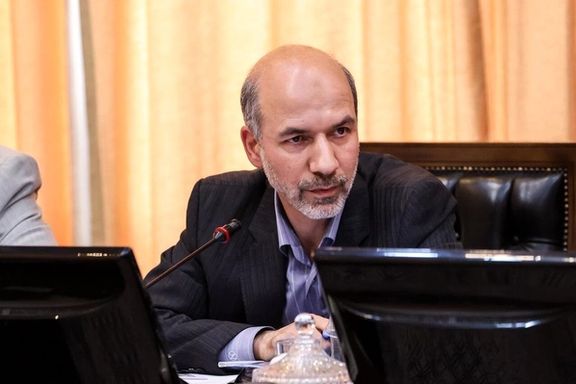
Iran’s energy minister says Tehran will not compromise the rights of the nation regarding its water share from the Hirmand River as it battles with the Taliban.
As the Taliban continues to ignore the threats by the regime and its military authorities regarding Iran's water share, Energy Minister Ali Akbar Mehrabian once more upped the ante against the militant group on Saturday.
"Despite the fact that our water share has not been given, we are taking necessary measures to supply water to the people," he threatened.
Flowing 700 miles, the river - which is called Helmand on the Afghan side - enters Iran's Hamoun wetlands in the Sistan-Baluchestan province after originating in the Hindu Kush Mountains near Kabul. Lake Hamoun used to be one of the world's largest wetlands, straddling 4,000 square kilometres between Iran and Afghanistan.
The river, which both Afghanistan and Iran depend on for agriculture and drinking water, has been the biggest source of tension for years.
Over the years, Iran has accused Afghanistan of restricting the flow of water from the river by building dams over it, a charge that Afghan authorities deny.
This comes as in the past few days, numerous reports have been published about water shortages in different regions of Iran, especially the Sistan and Baluchestan province.
Alireza Ghasemi, the CEO of Sistan and Baluchestan Province Water and Sewerage Company, told IRNA state news agency that the province is facing a water shortage of about 65 million cubic meters per year and all the cities of the province are suffering from water scarcity.
Iran's share from Helmand is 12 times the figure, which the Taliban refuses to give despite threats by Iran.